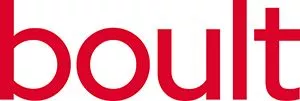- within Intellectual Property topic(s)
- with readers working within the Technology industries
- within Finance and Banking topic(s)
In 2019, the EUIPO's Cancellation Division raised some eyebrows in the trade marks world when they revoked in full the BIG MAC trade mark held McDonald's International Property Company Ltd (McDonald's) since 1998 on the basis that McDonald's had not made genuine use of the mark in the EU.
This was part of an ongoing dispute between McDonald's and the Irish fast food chain Supermac's Holdings Ltd (Supermac's), as part of which Supermac's had challenged McDonald's to provide evidence of use of their BIG MAC trade mark. It's a fairly standard tactic in disputes to demand that the other side provides proof of genuine use, which may have the effect of narrowing down the effective coverage of the registration in terms of goods and services.
In response, McDonald's filed affidavits from employees in the UK, France and Germany; menus, packaging and promotional materials from its websites for various EU countries; and a copy of the Wikipedia page dedicated to the Big Mac burger.
However, the Cancellation Division ruled that this evidence wasn't enough to show use of the mark in commerce: they said that the affidavits had less value than statements from independent sources, the website materials did not serve as evidence of use without corresponding evidence of website traffic or sales, and that the Wikipedia page was unreliable evidence due to the freely editable nature of that site.
The ruling to revoke the trade mark registration in full seemed harsh to many, and unsurprisingly McDonald's appealed the decision to the EUIPO's Board of Appeal (BoA), submitting around 700 pages of further evidence. This included consumer surveys, copies of receipts from cash registers, advertising materials, financial audit reports and Google analytics data.
In early 2023, the BoA overturned the Cancellation Division's decision in part, stating that the additional evidence filed by McDonald's was sufficient to prove use in relation to foods prepared from meat and poultry products, sandwiches, and restaurant services: arguably the primary goods and services of importance to McDonald's. The registration remains cancelled in relation to, among other things, eggs, biscuits and the design of fast food restaurants.
It is interesting to note that the BoA accepted the submission of additional evidence by McDonald's: such acceptance isn't automatic, and has to be supported by good reasons from the person putting in additional evidence. The BoA accepted it on the basis that it was in direct response to the criticisms raised by the Cancellation Division, and that it supplemented and built on the evidence filed initially. The BoA noted that the employee affidavits and Wikipedia page could not be disregarded and at least had confirmatory value as evidence: in particular, the Wikipedia page contained links to articles in known magazines and newspapers, which were considered reputable sources. There is even a "Big Mac Index" used by economists to compare the cost of living across different territories.
Ultimately, the BoA found that BIG MAC had not only been used in relation to burgers; it was such an integral part of McDonald's business that it served to distinguish the restaurants themselves from those of similar service providers, and McDonald's was allowed to keep its registration not only for burgers but for restaurant and takeaway services.
While this was (eventually) a positive result for McDonald's, the BIG MAC case serves as a reminder for brand owners and trade mark attorneys to be self-critical when filing evidence of use of a trade mark. It is particularly important to show the connection between the mark and its consumers: the key for McDonald's in their appeal was that they demonstrated not just their own use of the mark, but also its recognition in the marketplace and among the public. Internal use of a trade mark alone is unlikely to be sufficient.
13624777.TJG.TJG
The content of this article is intended to provide a general guide to the subject matter. Specialist advice should be sought about your specific circumstances.


